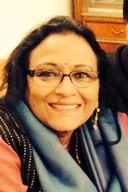Celiac Disease
Hi. I am Dr. Sushma Narayan. I am a Pediatric Gastroenterologist working in New Delhi. I have a dedicated clinic for celiac disease. Friends today I will be talking to you about celiac disease. Many of you may not have heard of celiac disease very much or you may know who is suffering from celiac disease. Now what is celiac disease? Celiac disease is a sort of wheat allergy or intolerance to wheat. More and more people are now coming to understand this disease to know that yes celiac disease exists and this is due to ingestion of wheat. Now there is a substance called gluten in wheat and barley and also a European grain called rye. Now when a person injects wheat which has gluten in it there is, the person starts suffering from some sort of discomfort may be stomach ache, or you know the need to go to the toilet, or some sort of nausea or vomiting. Now these are, these may be the initial symptoms. However in children the most predominant symptoms are diarrhea, chronic diarrhea, then severe anemia which is not responding to iron therapy. Severe iron deficiency and growth failure. These are the 3 hallmarks of celiac disease in children. We often pick up this disease around 4 to 5 years. Thereby showing that, yes the delay in diagnosis does occur in the disease. It;s not very easy to diagnose as a list of suspicion has to be very high when you are thinking of celiac disease, also there is a presentation which is called as Atypical presentation. Now in Atypical presentation need not have any of these symptoms but may just come to you with some thyroid issues., maybe some skin allergies or the patient may come to you simply with a diabetes mellitus. Insulin-dependent diabetes mellitus. So we have to really start thinking that is it really possible for a person to have wheat intolerance or all these symptoms. Yes it is true. But how does it come? How does this disease comes. Due to a genetic predisposition when the HLA dilute to or HLA due to 8 genes are present. We too are testing for this genes and if the patient is negative for these genes, it is said that they cannot celiac disease. In addition we have to very sensitive, psychology test, which one is called the anti TTG IGA and the second test is the anti Endomysial antibody tests. The TTG test is very easily available and comparatively cheaper test and it has a very high sensitivity and specificity. Once the TTG is positive then we also check out the family history. Is there any family history of wheat allergy or tolerance in the family and then request the patient to undergo an upper GI endoscopy along with a biopsy. Biopsy specimens are taken and these are examined and if the demonstrate that the will I have got damaged and there is a flat mucosa or there is a partial vilosetrophy then the diagnosis of the celiac disease is confirmed. Once the diagnosis of celiac disease is confirmed then we have to stop wheat. But prior to that a complete assessment of the patient has to be done with regard to the thyroid status, the liver enzymes have to be checked out and also the patient has to be thoroughly checked for other vitamins deficiencies like Vitamin D, Vitamin B complex and iron. And accordingly the supplementation has to be started. Now can these patients can take a little bit of wheat? No, unfortunately its not, because once the wheat allergy diagnosis that is a celiac disease that is established they cannot take even minuscule amount of wheat. The codex the national cortex elementary says that these patients cannot take more than 20 parts per million. However lot of food, glutton free food is available in the market which is not tested, which is not labeled properly, but these patients are compelled to use these foods. And these are highly containiated to treat which means that this patient never get into full recovery. So the issues here are that once we have found the patient is suffering from celiac disease we have to now help the patient to regain his full potential by stopping wheat completely and doing a regular follow up with the doctors to see if the patient compliance is good, if the glutton tree diet is completely, complete in all ways. Like its neutraionaly complete. So that the patient recovers completyly. And we, lot of Gastroenterologist are offering advice on celiac disease. We are working in Delhi. And if any of you need any consultation regarding this disease, please contact me through Lybrate or on my address which is celiac clinic, B13. Shiwalick malvic nagar. New Delhi.
Thank you.


+1.svg)
